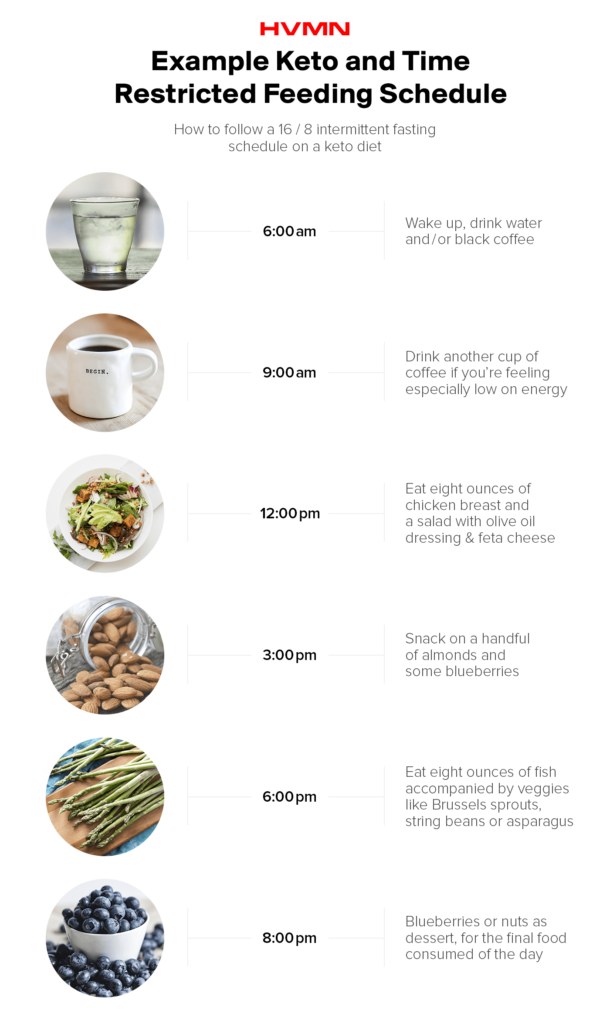In a recent discussion, Dr. Annette Bosworth, also known as Dr. Boz, critically examines the current discourse surrounding seed oils, highlighting her reservations about their growing popularity. With staunch advocacy for a ketogenic lifestyle, she emphasizes the importance of understanding dietary fats and their effects on health, particularly the controversial omega-6 fatty acids found in seed oils. The article aims to clarify misunderstandings about these oils and their potential health implications while promoting an educational approach to nutrition.
Dr. Boz encourages her audience to engage with her content, emphasizing the need for informed decision-making regarding dietary choices. The article also delves into relevant studies that challenge conventional perspectives on omega-6 consumption and its association with heart disease and cancer risk, providing a nuanced view of how various fats impact overall health. As you explore these insights, remember that seeking personalized medical advice is crucial before making any significant dietary changes.

Understanding Seed Oils
Definition and Sources
Seed oils, also known as vegetable oils, are extracted from the seeds of various plants. Common sources include canola, soybean, sunflower, safflower, and corn. These oils are predominantly made up of polyunsaturated fatty acids, particularly omega-6 fatty acids, along with some omega-3 fatty acids depending on the source. The extraction process typically involves methods like cold pressing or more industrial methods such as refining and bleaching, which can impact the oil’s nutritional properties.
Historical Context
Historically, the consumption of seed oils became prominent in the 20th century as industrialization transformed food processing methods. Before this period, fats derived from animal sources, like butter and lard, were more prevalent in Western diets. The shift towards seed oils was largely driven by their perceived health benefits, longer shelf-life, and cost-effectiveness compared to traditional fats. As public awareness of saturated fats grew, seed oils were often marketed as a healthier alternative.
Current Popularity and Usage
Today, seed oils are widely used in both home cooking and food manufacturing. They’re a staple for frying, salad dressings, and packaged foods due to their mild flavor and high smoke point. Many health professionals advocate for their inclusion in a balanced diet, while others urge caution, emphasizing the need for moderation and awareness of their omega-6 content.
Nutritional Composition
Seed oils primarily consist of fatty acids, specifically unsaturated fats, which are typically categorized into polyunsaturated and monounsaturated fats. They are high in omega-6 fatty acids like linoleic acid, which play important roles in bodily functions. However, the nutritional composition can vary significantly based on the type of oil and its processing methods, which can also lead to oxidation and the formation of harmful compounds.
Controversies Surrounding Seed Oils
Negative Perceptions and Public Discourse
Seed oils have garnered a negative reputation in recent years, often viewed as unhealthy due to their high omega-6 content. Critics argue that they are pro-inflammatory and contribute to various health issues, including heart disease and obesity. This has led to a polarized debate among nutritionists and health enthusiasts, creating an environment where public discourse can be rife with misinformation.
Pro-inflammatory Properties of Omega-6
The debate centers around omega-6 fatty acids found in seed oils. While omega-6s are essential for health, excessive consumption relative to omega-3 fatty acids can lead to an imbalance. Some studies suggest that high levels of omega-6 may promote inflammation, which is linked to chronic diseases. This has led to a movement advocating for a reduction in seed oil consumption.
Conflicting Research and Findings
Despite the negative perceptions, multiple studies indicate that omega-6 fatty acids may not have the harmful effects that are often attributed to them. For example, research led by experts like Bill Harris suggests that higher consumption of omega-6 could be linked to lower rates of heart disease. This conflicting evidence adds complexity to the dialogue surrounding dietary fats, as researchers continue to investigate the nuances of omega-6 and omega-3 interactions.
Socio-political Implications in Dietary Choices
The discourse surrounding seed oils often extends beyond health implications into socio-political realms. Just as public health policies regarding mask-wearing became politicized, dietary choices around seed oils can be equally contentious. This layered debate complicates public education and personal dietary decisions, making it essential to seek balanced views grounded in sound research.

The Role of Omega-6 and Omega-3 Fatty Acids
Health Benefits and Risks
Omega-6 and omega-3 fatty acids play critical roles in human health. Omega-3s, found in fish oil and certain plant sources, are recognized for their anti-inflammatory properties. However, omega-6s, while sometimes demonized, are essential for biological functions, including cell structure and metabolism. A balanced intake of both is crucial for optimal health.
The Balance Between Omega-6 and Omega-3
The modern diet often skews heavily towards omega-6 fatty acids due to the prevalence of seed oils. Health experts recommend maintaining a balanced ratio of omega-6 to omega-3 to support inflammatory pathways and overall well-being. Striving for this balance may involve dietary adjustments, such as increasing omega-3-rich foods while moderating omega-6 intake.
Research Insights from Experts
Recent exploration by researchers highlights the importance of revisiting established beliefs about dietary fats. Experts, including Dr. Boz and Bill Harris, have called for further investigation into the potential benefits of omega-6 fatty acids. Their research suggests that when consumed in moderation, alongside adequate omega-3s, omega-6s could contribute positively to health outcomes.
Impact on Inflammation and Overall Health
The relationship between omega-6 and omega-3 fatty acids is vital for regulating inflammation in the body. An overload of omega-6 can potentially lead to heightened inflammatory responses, whereas omega-3 serves as a counterbalance. Achieving an appropriate ratio between the two is pivotal in managing inflammation and enhancing overall health.
Dietary Guidelines and Recommendations
Current Dietary Guidelines on Fats
Dietary guidelines currently recommend incorporating healthy fats while moderating the intake of saturated fats and trans fats. The emphasis is on consuming fats from whole food sources, such as avocados, nuts, seeds, fish, and olives, rather than processed seed oils. These recommendations aim to promote heart health and reduce the risk of chronic diseases.
Promoting a Ketogenic Diet
The ketogenic diet, which is low in carbohydrates and high in fats, has gained popularity in recent years. Proponents argue that by emphasizing healthy fats, including those from animal sources and specific plant oils, individuals can achieve weight loss and improve metabolic health. The diet supports the body’s use of ketones as a primary energy source, shifting the focus away from traditional carb-loaded meals.
Importance of Whole Foods
Whole foods, such as fresh fruits, vegetables, legumes, and high-quality protein sources, are essential for a balanced diet. Incorporating these foods helps mitigate the risks associated with processed seed oils. Whole foods offer vital nutrients that support bodily functions and enhance health, positioning them as foundational elements of a nutritious diet.
Alternative Oils and Fats
For those transitioning away from seed oils, exploring alternative oils can be beneficial. Options such as olive oil, avocado oil, and coconut oil provide different health benefits while avoiding some of the negative attributes associated with seed oils. These alternatives are often rich in monounsaturated fats and antioxidants, contributing positively to heart health.

Long-Term Studies and Health Outcomes
Overview of Historical Data from 1970-2010
Evidence from studies conducted between 1970 and 2010 has begun to illuminate the long-term impacts of dietary fats on health. This period revealed trends linking higher consumption of seed oils to better metabolic markers in populations. It also sparked inquiries into how linoleic acid, a primary component of seed oils, impacts chronic disease prevalence.
Link Between Linoleic Acid and Diabetes Rates
Longitudinal data show a correlation between increased linoleic acid intake and lower diabetes rates in various populations. Investigators have noted that replacing saturated fats with linoleic acid-rich oils may lead to improved insulin sensitivity. This relationship underscores the nuanced role dietary fats play in metabolic health.
Recent Findings from the 2024 UK Biobank Study
A significant study conducted in 2024 by the UK Biobank examined the relationship between omega-6 fatty acids and health outcomes. The findings indicated that for every unit increase of omega-6, there was a 2% decrease in cancer risk. These results challenge the long-held negative perception of omega-6s, suggesting a potential protective effect against certain diseases.
Correlations Between Omega-6 and Heart Disease
Contrarily, some research has shown that increased levels of omega-6 fatty acids might be associated with reduced rates of heart disease. As the nutritional landscape continues to evolve, it’s crucial to consider both the type and source of dietary fats in making health assessments and recommendations.
Health Implications of Seed Oils
Chronic Diseases and Inflammation
Overconsumption of omega-6 fatty acids from seed oils is hypothesized to contribute to chronic diseases characterized by inflammation, such as heart disease, diabetes, and certain cancers. The inflammatory response may be exacerbated by an imbalanced omega-6 to omega-3 ratio, further complicating the relationship between diet and health.
Weight Management and Ketosis
The ketogenic diet emphasizes high-fat and low-carbohydrate intake, which can aid in weight loss and metabolic regulation. When individuals adopt this diet, replacing seed oils with healthier fat alternatives may amplify the benefits associated with ketosis, promoting sustained energy levels and improved fat oxidation.
Consulting Healthcare Professionals
Before making significant dietary shifts, it’s imperative to consult with healthcare professionals or registered dietitians. They can provide personalized advice and help tailor recommendations that consider individual health conditions, dietary preferences, and lifestyle factors.
Preventative Health Strategies
Incorporating a balanced diet, rich in whole foods and healthy fats while minimizing processed ingredients, is a proactive approach to maintaining health. Awareness of the types and sources of dietary fats can equip individuals to make informed choices that support long-term wellness and mitigate chronic disease risks.
Expert Opinions and Advocacy
Insights from Dr. Boz and Bill Harris
Dr. Boz and researchers like Bill Harris are influential voices in the ongoing discourse about dietary fats. Both experts emphasize the importance of not dismissing omega-6s outright but rather advocating for a balanced approach to dietary fats. Their insights encourage individuals to question existing narratives and seek a deeper understanding of nutrition.
Challenges in the Research Community
The nutritional research community faces significant challenges in providing definitive conclusions regarding dietary fats. Conflicting studies, varying methodologies, and differing population contexts contribute to ongoing debates. This complexity highlights the need for more rigorous, nuanced research to clarify the impacts of seed oils and fatty acids on health.
Promoting Balanced Perspectives on Dietary Fats
Promoting a balanced understanding of dietary fats involves recognizing the potential benefits and risks associated with both omega-6 and omega-3 fatty acids. Advocates argue for shifting the focus towards overall dietary patterns rather than isolating specific components, fostering a healthier discourse around nutrition.
Encouraging Viewer Engagement and Consultation
Experts urge viewers and individuals interested in their health to engage in discussions about dietary choices actively. Encouraging consultation with healthcare providers and seeking out educational content can empower individuals to make informed dietary decisions.
Practical Approaches to Dietary Changes
Identifying Seed Oil Sources in Diet
To modify your diet effectively, start by assessing current sources of seed oils in your meals. Read ingredient labels on packaged foods, cooking oils, and dressings to identify and track your consumption of these oils.
Healthy Substitutes for Cooking and Eating
Consider healthy substitutes for cooking, such as olive oil, avocado oil, or ghee, which offer beneficial fat profiles without the drawbacks associated with seed oils. These alternatives provide flavor and nutritional value, catering to various culinary applications.
Incorporating Keto-Friendly Foods
In the context of a ketogenic diet, focus on incorporating low-carb, high-fat foods. This includes fatty fish, avocados, nuts, and non-starchy vegetables. These options not only align with keto principles but also support a balanced intake of essential fatty acids.
Meal Planning Tips for Low Insulin Diet
When planning meals, prioritize whole, unprocessed foods while minimizing refined carbohydrates and sugars. Preparing meals in advance can help you maintain dietary goals, ensuring that you are equipped with nutritious options that align with your health objectives.
Educational Resources and Support
Books and Online Courses for Ketogenic Lifestyle
Investing time in educational resources can reinforce your understanding of a ketogenic lifestyle. Numerous books and online courses provide insights into healthy fat consumption, meal planning, and overall dietary strategies to support ketone production.
Community and Support Channels
Engaging with a community of like-minded individuals can enhance your journey toward healthy living. Online forums, social media groups, and local organizations centered on keto lifestyles can offer valuable support and motivation.
Utilizing Tools for Health Monitoring
Consider utilizing tools like food diaries, nutrition tracking apps, or wearable technology that monitor health markers such as insulin levels, heart rate, and activity. These tools can provide insights into your progress and help identify areas for improvement.
Importance of Shared Knowledge
The exchange of knowledge within your community can empower others to make healthier choices. Sharing resources, recipes, and personal experiences can create an environment of support and accountability, ultimately fostering better health outcomes for all.
Conclusion
Summarizing Key Takeaways
In summary, seed oils play a complex role in modern diets, with ongoing debates about their health implications. Understanding the nutritional composition of seed oils, the balance between omega-6 and omega-3 fatty acids, and the importance of whole foods and healthy fats can guide your dietary choices.
Encouraging Informed Dietary Choices
As you navigate the landscape of nutrition, aim to make informed dietary choices grounded in credible research. Seek balance in your intake of dietary fats and prioritize whole, minimally processed foods in your meals.
The Importance of Continuous Learning
The field of nutrition is continuously evolving. Commit to lifelong learning about dietary fats, nutrition science, and overall health to empower yourself to make beneficial lifestyle changes.
Final Thoughts on Health and Well-being
Ultimately, your health and well-being should be paramount. By critically assessing information, engaging with experts, and prioritizing a balanced diet, you can cultivate a pathway to better health, informed by research and supported by community engagement.







